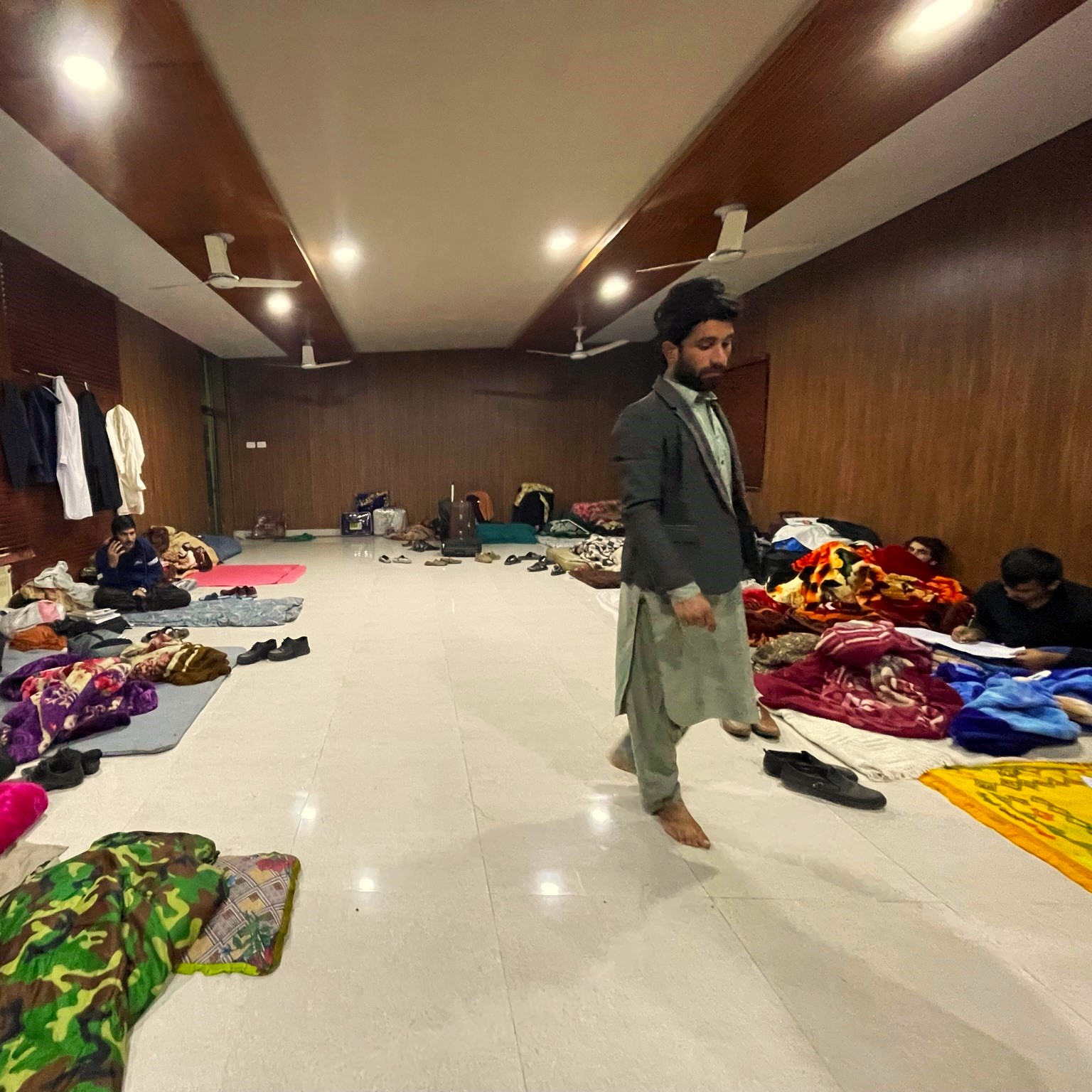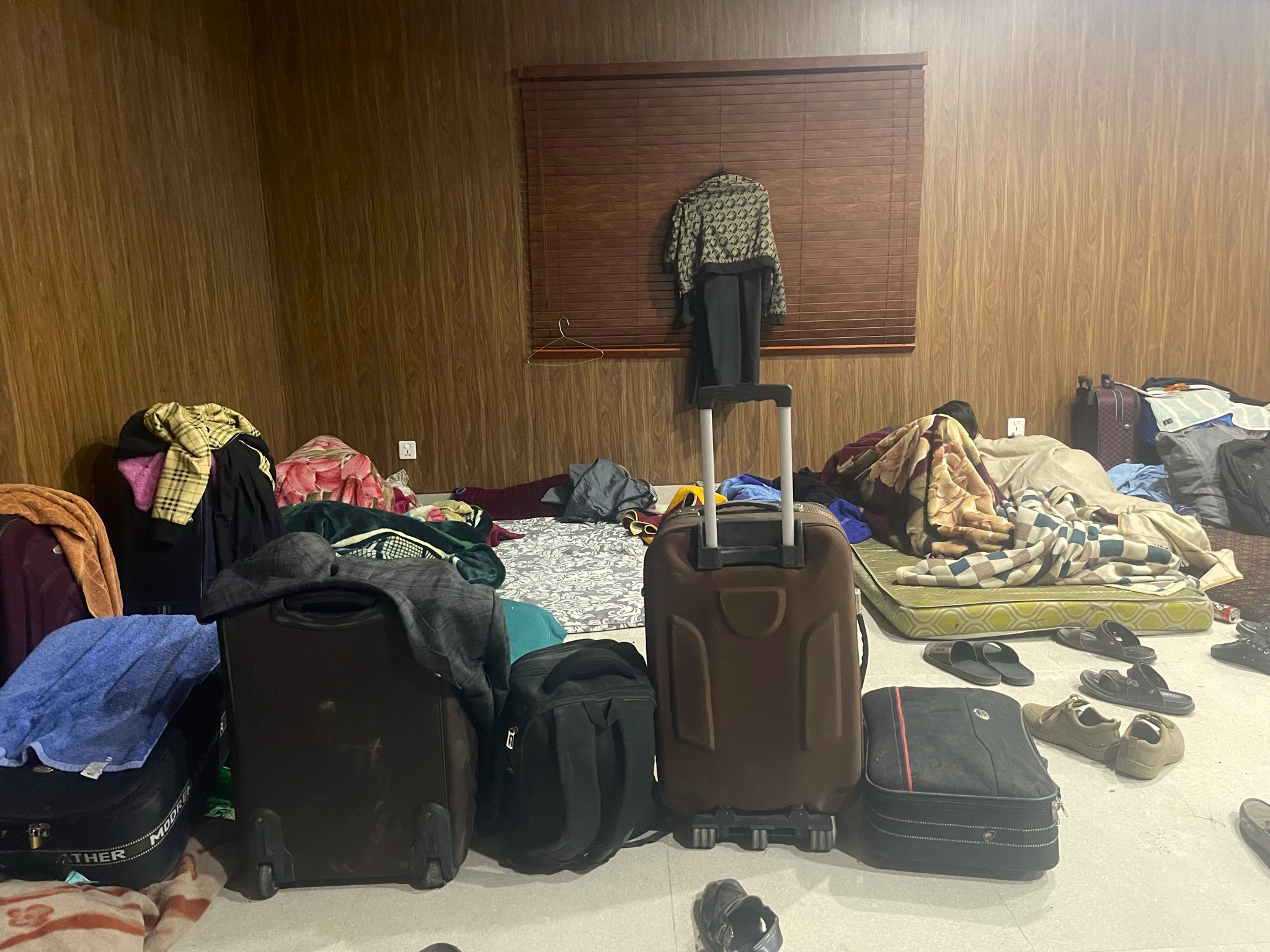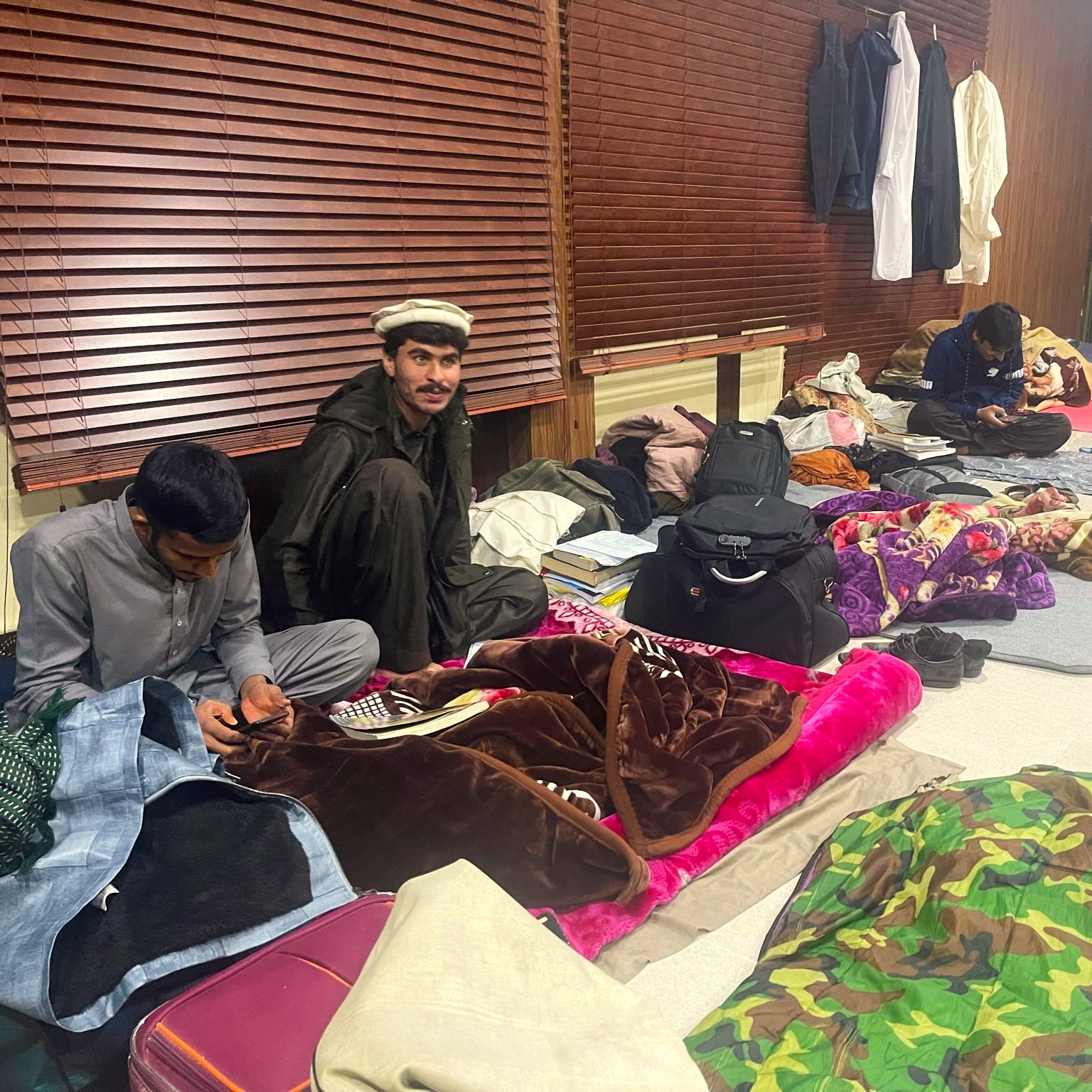Hamza Mehsud is a 19-year-old youth who comes from the militancy-plagued town of Makeen in South Waziristan.
After going through the competitive admission process of Law Admission Test (LAT), the young tribesman finally made it to the University Law College at the University of the Punjab in January this year.
But a nasty shock was awaiting him there.
When Hamza reached his college, he, instead of having been allotted accommodation in the varsity’s hostel, was forced to live in the spacious hall of the Directorate of Students Affairs along with 40 other students. The hall gives a look of the jail where all the students sleep on the mats laid down untidily on the floor just like prisoners. The students put their huge bags on both sides of the mats, which serve as separation walls for them.
“There is no changing room, cupboards and pegs besides the restrooms are not enough to cater to the needs of such a large number of inmates.”
All the students are required to free up the hall space early in the morning because it, basically, serves as the office for resolving the issues the students and faced with.
He claims that he meets the criterion of the University to accommodate the students of far-flung areas in the hostels on priority basis. “The second month of my first semester has started but I have yet to be allotted the hostel room.”
The situation in girls’ hostel is not much different, rather it is more pathetic.
Kulsoom* hails from southern Punjab. She was enrolled in the University and of the Punjab in December last year. She, along with other 35 students, were initially adjusted in the prayers room of the hostel. Later, she and 10 other students were shifted to the Common Room of the hostel.
 Students of Panjab University reside in the Director Student Affairs Hall instead of hostel
Students of Panjab University reside in the Director Student Affairs Hall instead of hostel“We don’t have any privacy. With no proper bedding, the varsity administration had left us to sleep on the mats in the freezing cold weather.”
The crisis emerged a few years back when the university administration increased the number of programmes from 80 to 150, which led to the huge influx of new students with no additional facilities to house them.
Capacity and funding
The official website of the University of the Punjab states that it has 28 hostels — 16 for male and 12 for female students — housing approximately 7,000 students. Each student is provided with a bed, desk, chair and closet. All hostels have their own laundry facilities, dining hall, toilets and additional store. The rooms are designed to accommodate two to three students, however this year there are at least four to five students in a room.
Students are allotted rooms through an online merit system, based on the recommendation of their respective programmes. Once a student is allotted a place online, the hostel administration is duty-bound to ensure that s/he has a room and access to all hostel facilities. Students complain that they have submitted hostel fee, but the university administration is not allotting them hostels online.
Muhammad Zubair is one such student. He has deposited hostel fee, “but I am dumped in an over-packed common room.”
A warden of the hostel in the university, who wished not to be named, tells Sujag that the issue of overcrowding started a few years ago. “Presently, there are almost 6,000 enrolled students and incoming batches grow larger and larger each year.”
On the contrary, the website of the university states that its 28 hostels have the capacity to provide boarding facilities to around 7,000. The warden, nevertheless, says that a large number of people, affiliated with different student unions, have been illegally living in these hostels from the last many years.
But at the same time, he admits that since 2000, the administration did not build a single new hostel “because of the meagre resources.”
The vice-chancellor of the university, Prof. Dr. Niaz Akhtar, says that the university administration has been requisitioning additional funds from the government since long, but to no avail. “We have enough land to build five more hostels, but have no funds.”
Putting his weight behind the vice-chancellor, chairman of the Hall Council, Prof. Dr. Mahboob Hussain — who is responsible for overseeing all on-campus housing and room allocation affairs — says: “The new programmes introduced by the university have attracted more students, but the housing facilities were not updated accordingly.”
But the spokesman of the university, Khurram Shahzad, differs with the vice-chancellor and chairman of the Hall Council. He thinks that new hostels are not required. “We have enough capacity to accommodate the existing students.”
The highhandedness
Secretary-general of the Baloch Council at the University of the Punjab, Abrar Baloch, alleges that the university administration is prioritising room allotment for students registered with the Islami Jamiat-i-Talaba — a student wing of the Jamaat-i-Islami.
The warden confides to the Sujag that “IJT has illegally occupied at least 10-15 rooms in each hostel. The [university] administration has literally surrendered before them, fearing that it may trigger a series of violent protests.” This, according to the warden, garners support for the IJT in the long run, because students think that by becoming a part of this organization, they can get their problems resolved in seconds.
 There is no room for students to keep their belongings aside in the hall
There is no room for students to keep their belongings aside in the hallThe VC refutes these allegations and says that “all students occupying hostel rooms are legal occupants.”
Not so equal
While leaving from his hometown Quetta to the culturally-rich Lahore, Muhammad Zubair was optimist that it would provide him with an opportunity to mix-up with the people from different ethnicities, languages and cultural backgrounds.
However, his high hopes dashed to ground when he witnessed a strict criterion, though unannounced, of amassing the students of Baloch and Pashtun ethnicities in the same hostel rooms.
Khalid Khan, a third semester student at the university’s law college, experience in connection, lends credence to the assertions of Zubair. “The university has an unannounced consensus to put the Pashtun and Baloch students together. In 2020, I had to spend five months in a private hostel, while there were vacant rooms on campus.”
Renowned educationist Dr. Pervez Hoodbhoy considers it a failure of educational institutions to create harmony between different ethnic groups of the country. “This is symptomatic of Pakistan’s larger failure of not being able to build a cohesive nation in 75 years.”
Published on 21 Mar 2023



















